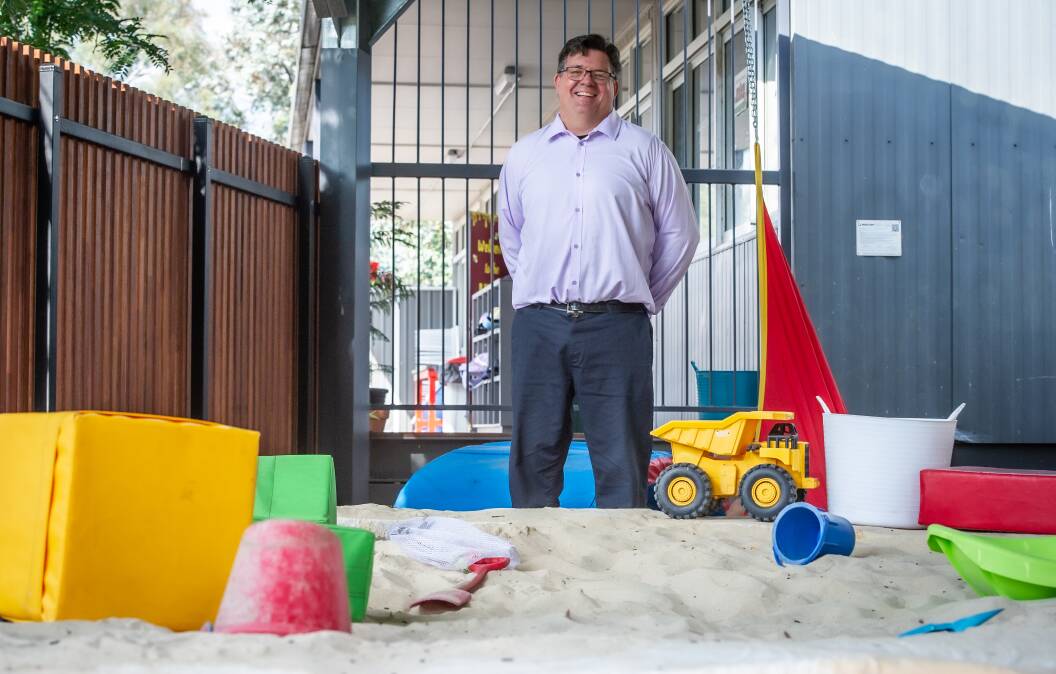
There's an atmosphere of quiet busyness as you walk into the open-plan year three and four classroom at Fraser Primary School.
The students are absorbed in their books or laptops, taking notes in their workbooks. Meanwhile, teachers are leading small groups in literacy tasks.
The school has been identified as being high-performing in NAPLAN, meaning the students' scores were significantly above students of similar socio-educational advantage in the past three years.
Principal Mark Deeker works hard on promoting a culture based on support, cooperation, acceptance, friendliness and respect.
He's also very into data. An electrician by trade before switching to teaching 20 years ago, Mr Deeker was an early adopter of using data to precisely track student progress and teacher skills.
"Without data, you're just another person with an opinion. You've got to have data. And data tells us if the program's working, it tells us what we can do to improve individual student performance, but also what we can do to improve our performance," he said.

"If all the kids aren't getting it, maybe we will change something."
Twice a year, the school surveys teachers on what skills they would like to develop and plans professional learning accordingly. The school has two highly accomplished expert teachers, one of which is in charge of coaching the five early career educators.
Fraser Primary aims to have as little variation between classrooms as possible. Each class is set up in a similar way, following a similar timetable so that students and teachers know exactly what is expected.
"Everyone is working together on that common purpose about being better and about knowing the kids, owning the kids together as a collective group, talking about how we're going to make sure that we are moving everybody forward, knowing the data."

The 2022 NAPLAN data is published on the My School website from Wednesday.
Grattan Institute education program director Dr Jordana Hunter said schools that scored highly tended to have high expectations for students and great professional development and curriculum support for teachers.
"There's often a lot of distractions in schools, and a lot of distractions for teachers. And those schools that tend to perform really strongly have a really clear shared commitment to prioritising learning, particularly in core academic disciplines."
While the ACT performs highly against the Australian standards, by the time students get to year nine, almost one in five students are achieving at or below the minimum standard in reading, Dr Hunter said.
"If a student is really struggling, NAPLAN is not going to tell you exactly why. But it might prompt some of those conversations ... so I think even though NAPLAN is not perfect, we'd be worse off without it."
Mr Deeker didn't need NAPLAN to know his school was on the right track.
"There's all the pedagogy and all the data and the technical terms around school, but that's not the magic here. The magic is relationships. Our teachers love the kids and they love the teachers. That's the magic."
We've made it a whole lot easier for you to have your say. Our new comment platform requires only one log-in to access articles and to join the discussion on The Canberra Times website. Find out how to register so you can enjoy civil, friendly and engaging discussions. See our moderation policy here.







